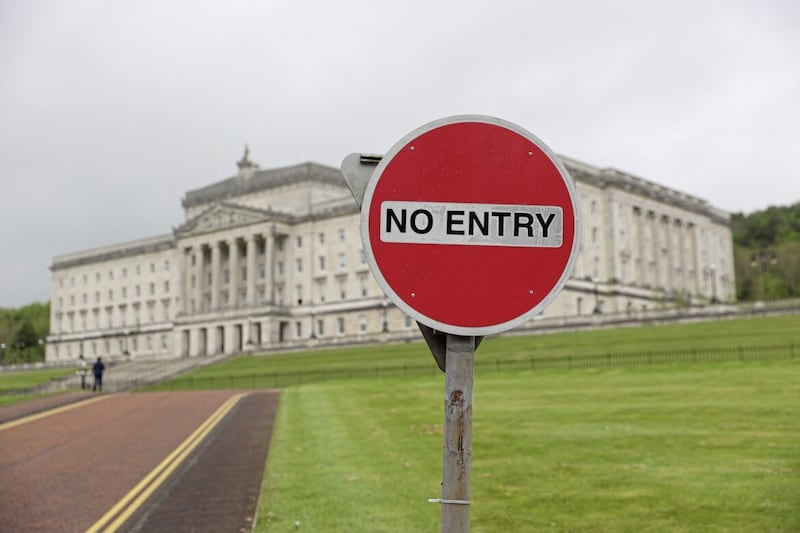Formation of the Northern Ireland Assembly
The Northern Ireland Assembly in its current form was established as a result of the Good Friday Agreement/Belfast Agreement in April 1998. The Assembly initially sat in shadow form for six months when it was established until full powers were devolved to it from Westminster in December 1999.
The Northern Ireland Assembly is the devolved legislature of Northern Ireland. It is often referred to as the Stormont Assembly as it operates from Stormont parliament buildings in east Belfast. Throughout its existence, the Assembly has been repeatedly dissolved and suspended due to various disagreements between local political parties.
How many members are there in the Northern Ireland Assembly?
Initially the Assembly had 108 elected members, but this was reduced to 90 MLAs (members of legislative assembly) in March 2017. The Assembly has a 12-person multi-party powersharing Executive, made up of a first and deputy First Minister, two junior ministers and eight other ministers with respective cabinet portfolios.
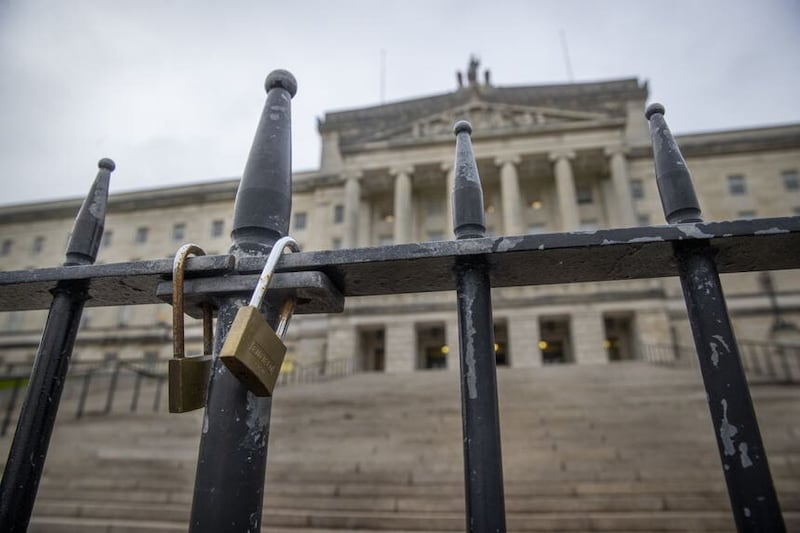
How often has Stormont been suspended?
Since it was first formed in December 1998 the Stormont Assembly has been suspended on at least eight occasions or for more than an estimated 40% of the time it could have been in operation.
FactCheckNI calculated that in the first five years of its existence, between December 2 1999, and December 2 2004, the Assembly’s powersharing Executive was active for 937 days but did not function for 890 days (48.7 per cent). In contrast, in the last five years that the Assembly operated, between November 8 2017 and November 8 2022, the Stormont Executive was active for 755 days but suspended for 1,071 days (58.7 per cent), concluding that the most recent five years of the Assembly had been markedly less productive than its first five years in existence.
Timeline of powersharing Executive suspensions
Devolution was first suspended between February 2000 and May 2000 by then Secretary of State Peter Mandelson because of the IRA’s failure to agree a timeline for weapons’ decommissioning.
Mr Mandelson’s successor John Reid suspended the Assembly for one day on August 11 2001 over the IRA’s failure to make progress on decommissioning and again on September 22 of the same year to allow for political talks aimed at securing a breakthrough on the issue.
October 2002: The Assembly was dissolved by Mr Reid for a fourth time following allegations that an IRA spy ring was operating within Stormont. In the absence of a functioning Assembly, direct rule was imposed from London for a four-and-a-half-year period until May 2007.
The Assembly was again procedurally dissolved in May 2011 and May 2016 for a number of days to allow for local elections to the parliament.
Sinn Fein collapses Stormont in 2017
January 2017: The Assembly was dissolved for the eighth time following the resignation of Martin McGuinness as deputy first minister. Sinn Fein had demanded DUP First Minister Arlene Foster step aside while a public inquiry was held into allegations of irregular payments made in an Assembly funded renewal energies scheme called the Renewable Heat Incentive (RHI). Mrs Foster had refused to step down as first minister.
In August 2018 Northern Ireland became the longest peacetime country in the world to operate without a government when it overtook the previous record holder Belgium’s 589 days without a functioning government.
The Assembly was not restored until January 11 2020 after being in suspension for 1,097 days.
DUP collapses Stormont in 2022
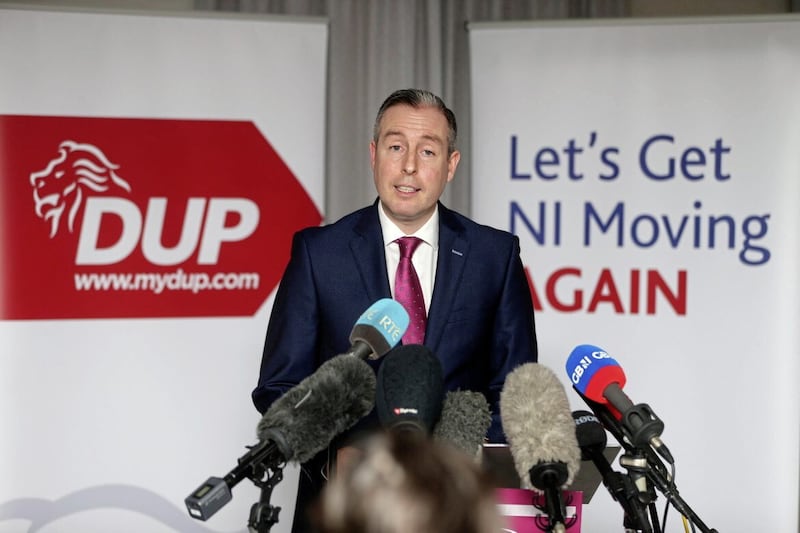
February 2022: The Assembly was dissolved for an eighth time following the resignation of DUP First Minister Paul Givan in protest at the introduction of the Northern Ireland Protocol - part of a Brexit agreement between the British government and the European Union designed to prevent a hard border on the island of Ireland.
May: Assembly election results see Sinn Fein overtake the DUP to become the biggest party at Stormont.
May 30: Assembly sits following a recall petition, but an attempt to elect a speaker to allow business to proceed failed after the DUP refused to support it.
June 13: The Northern Ireland Protocol Bill, designed to effectively override sections of the deal is introduced in Parliament.
August 3: Another recall of the Assembly sees DUP again refuse to support any nominations for a new speaker.
January 2024: Another unsuccessful recall of the Assembly.
In the early hours of January 30 2024 DUP leader Jeffrey Donaldson announced that the DUP party executive had backed a UK Government deal aimed at addressing its concerns over post-Brexit trade barriers.
DUP leader Sir Jeffrey Donaldson said he would drop the blockade on devolution at Stormont once the British government implemented the various legislative assurances and other measures it has offered his party.
Secretary of State Chris Heaton Harris welcomed the step and made clear the government would deliver on its end of the deal.
Who runs Northern Ireland when Stormont is suspended/dissolved?
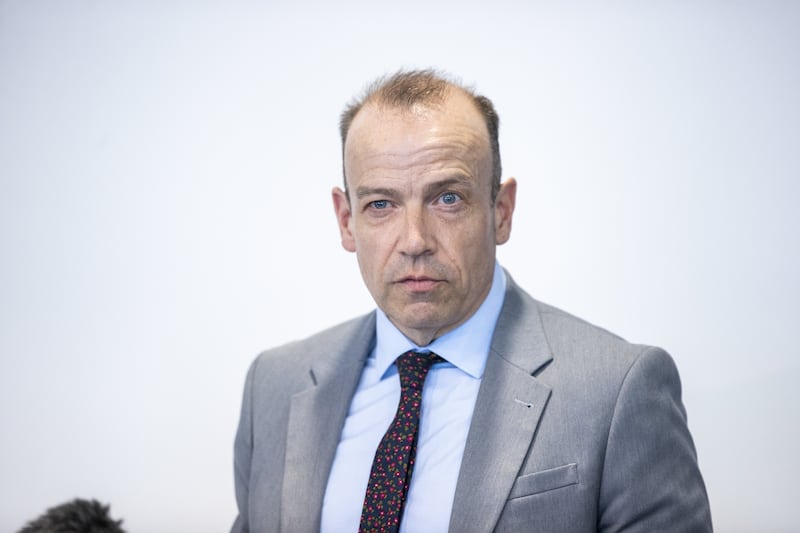
Secretary of State Chris Heaton Harris is the British government minister in charge of Northern Ireland affairs. Mr Heaton Harris is not elected in Northern Ireland.
When the Assembly is functioning it follows normal political procedures with government departments controlled by ministers, who collectively make up the Stormont powersharing Executive. However, when the Assembly is suspended or dissolved decision-making powers are transferred to each departments’ permanent secretaries.
These non-elected senior civil servants effectively control how Northern Ireland is governed but are unable to make any new or far-reaching policy decisions. Instead, they are obliged to follow the political policies of their former ministerial masters.
In July 2018 a Northern Ireland court ruled that decisions which would have normally been made by a minister were “beyond the competence of a senior civil servant in the absence of a minister”.
The judgement stated: "Any decision which as a matter of convention or otherwise would normally go before the minister for approval lies beyond the competence of a senior civil servant in the absence of a minister."
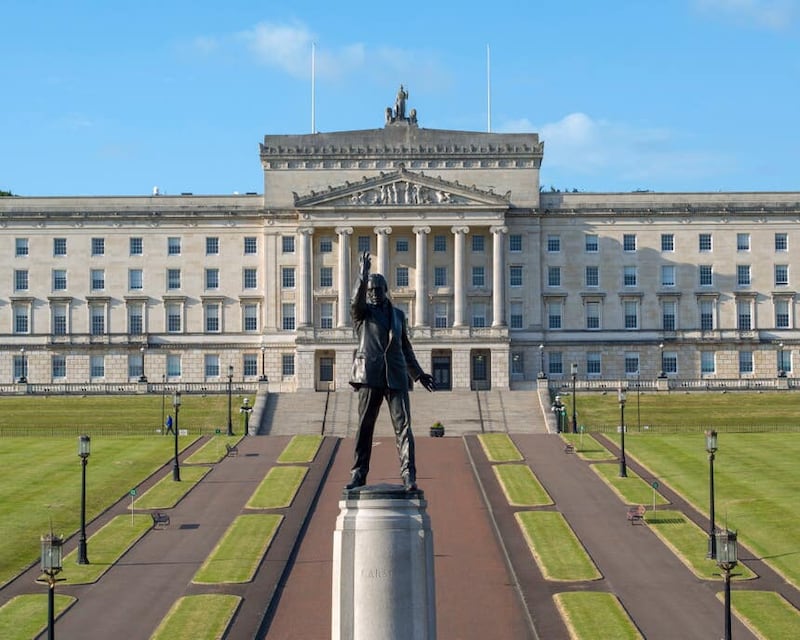
What is the difference between the NI Assembly being suspended and dissolved?
An institution that is suspended can be restored through political agreement and therefore MLAs are still entitled to receive a salary, but if an Assembly is dissolved outgoing politicians no longer have any elected role and therefore are not entitled to an MLA’s salary.
What are the implications of the Stormont collapse for MLAs in Northern Ireland? Do they still get paid?
Assembly members have traditionally continued to receive their salaries even when Stormont has been suspended.
However, a number of secretaries of state have chosen to reduce MLAs' salaries as a result of protracted periods of inactivity at Stormont.
In September 2018 then Secretary of State Karen Brady announced that she was reducing MLAs’ salaries by 27.5% from £49,500 to £35,888 following 600 days of the assembly being suspended.
This followed 22,468 people signing a 2018 online petition calling for MLAs’ wages to be stopped until the Stormont assembly was restored.
Ms Brady defended her decision to continue paying MLAs despite the lack of a functioning government.
“While the Assembly is not sitting, it is recognised that MLAs continue to be active in constituency work. On that basis it is considered appropriate for MLAs to continue to receive a salary. However, it can’t be right that they continue to receive their full salary until the Executive and the Assembly are restored.”
In January 2023 current Secretary of State Chris Heaton Harris warned MLAs that he was reducing their salaries by 27.5% after eight months of assembly inactivity following the DUP’s decision to withdraw from government.
“For over 200 days MLAs have been receiving full pay while failing to fulfil the full duties they were elected to do,” Mr Heaton Harris said. “Reducing their pay until an Assembly is restored reflects the work they are currently carrying out.”



